#prima rosa
Explore tagged Tumblr posts
Text
You know, I've seen Coco AUs where Imelda gets cursed, and AUs where Coco gets cursed. I've seen AUs where Elena, with or without Victoria, gets cursed. I've seen AUs where Rosa gets cursed, with or instead of Miguel.
That covers every generation of the Rivera family...except one.
Where are the AUs where someone from Miguel's parents' generation, one of Héctor's great-grandchildren, gets cursed?
What would happen if, say, Miguel's father Enrique had been cursed instead of him?
#coco#imelda rivera#coco rivera#elena rivera#victoria rivera#rosa rivera#enrique rivera#miguel rivera#prima rosa#abuelita elena#tia victoria#mama coco#mama imelda#coco au#coco (2017)#pixar coco#coco pixar#rivera family#the rivera family#coco(2017)
23 notes
·
View notes
Text
The One, The Only, The Great Caruso By Rosa Ponselle, The New York Times; Feb. 25, 1973
Today is the 100th anniversary of the birth of Enrico Caruso, widely regarded as the greatest tenor in operatic history. Here, a celebrated soprano recalls Caruso and the years in which she sang with him.
HE stepped into the room jauntily, looking every bit as dapper as he did in all his photographs. He was wearing a light‐colored fedora, tipped to one side and creased in the middle. He had one of those high, stiff collars, gloves, and a long cigaret holder, and he carried a cane, always a cane. He was such a lovely, cleanlooking, beautifully groomed man. He was of good, medium height, with a broad chest, very wide shoulders, and was narrow in the hips. His bone structure was very square — square jaw, wide, strong chin, and a prominent, noble nose.
It was the first time I had ever met Enrico Caruso. The place was a studio in the West Seventies, the time was April, 1918. I was then a young vaudeville singer of 21; he was then 45, at the very height of his career with the Metropolitan Opera. The occasion of our meeting? He had heard, via the grapevine, that my older sister, Carmela, and I had potential operatic voices, and he had come with several other Metropolitan singers to hear us.
I had already heard him sing twice at the Met, with the sublime Geraldine Farrar in “Madama Butterfly,” and the divine, beautiful Claudia Muzio in “The Love of Three Kings.” The first time I heard him, in “Butterfly,” I was 17, and it was my first trip to New York. My sister and I sat up in the gallery, and we were the last ones to leave that night. I can honestly say there wasn't a dry eye in the house. I myself was numb, and couldn't stop weeping. I had never heard such sounds, and it took me a long time to control myself.
How can I describe his voice? “Molten gold” probably comes closest to anything I could say. It's something that is predestined, I guess. Before he was even put on this earth, he was going to be the great Caruso. It's something that remains unexplainable, why someone has a beautiful voice and someone else not so beautiful. Perhaps there have been voices as big, or bigger, but his was unique. It could caress you and soothe you. It loved you, and it excited you; every emotion you could possibly feel he gave you, he was so imbued with feeling. He wasn't the most romantic figure on the stage, but when he sang you saw a handsome man up there. His soul was so handsome, the sound was so handsome, that he became beautiful. And you could see, by his face that he was loving it, enjoying it, and he it to everybody.
When he came into the studio that day in April, 1918, he crossed the room looking my sister and me over. Then he said to me in his Neapolitan dialect, “Hey, urchin! You know you look like me?” (He must have known that I was of Neapolitan descent, though American‐born.) I think I was more excited than nervous at the time, and perhaps I thought I was pretty smart. For I answered, “I wouldn't mind looking like you if I could only sing like you.” His eyes narrowed and he nodded a few times. All he said was, “We'll see, we'll see,” but I'm sure he was thinking, “What nerve! What ambition! She must have what it takes.”
My sister and I ran through our repertoire, mostly Verdi, singing all the big, technically difficult arias from “Trovatore,” “Gioconda,” “Aida,” and others. It was a very ambitious program considering that I had never had any voice training, and my sister very little. I remember that, as I sang, he studied me carefully, his eyes squinting shrewdly as he sized me up. I didn't know it then, of course, but he was already thinking of me as Leonora, his leading lady for “La Forza del Destino.” Because of the war, there was a shortage of sopranos suitable for this dramatic role, and Caruso had been wanting to do the opera for a long time.
When my sister and I had finished, Caruso and his friends — Rosa Raisa, Giacomo Rimini, Adamo Didur and the others — applauded. Then Caruso congratulated us, and we got all sorts of words of encouragement from these great artists. As we were getting ready to leave, Caruso walked over to me and said, “You're going to sing with me yet. I don't know when, maybe a year, maybe two, but you will.”
Of course, I was absolutely paralyzed when I heard that. I had never had any serious aspirations as an opera singer, and here was Caruso telling me that I would soon be singing with him!
Then he put his hand on his throat and said, “You've got it here,” meaning the voice. He moved his hand to his heart and said, “You've got it here,” meaning the emotions. Then he pointed to his head and said, “The rest depends on what you've got up here” — the brains, the ability to memorize — “but I think you've got it.”
The very next day, or two at the most, our representative, William Thorner, got a call from Gatti‐Casazza, the general manager of the Metropolitan Opera. “I hear you have two very fine voices,” Gatti said “How soon can I hear them?” Shortly afterward, we both auditioned for Gatti, Otto Kahn and all the other directors at the Met. Word had gotten around like wildfire —they all wanted to hear Caruso's “find.”
Later I sang for Gatti again, and this time I almost fainted with excitement. My sister had to give me smelling salts to revive me. When it was over, Gatti asked me to come into his office. “Here, sign this,” he said. “Sign what?” I asked. “Your contract to make your debut with Caruso in ‘La Forza del Destino.’ Do you think you could be ready by November?” And that's how it all started.
I remember the rehearsals very well. Gatti was walking around beaming, he was so proud and happy with his cast. Caruso would sit there and listen to me singing, always assuring me and reassuring me, and suggesting ways of improving my performance. He was al‐. ways like this at rehearsals, not at all temperamental. I never saw him have a tantrum, or become angry with anyone. He was just as humble and helpful to a singer as he could be. He would say to a singer who was having a problem, “Try it this way, or that way.” He was very solicitous; all can see is kindness in that face. And he was generous to a fault. He couldn't say “No” to anyone who needed money. He'd indulge them in everything. Once he said to me, “I never knew I had so many relatives until I became a celebrity!”
I made my debut with Caruso on the night of Nov. 15, 1918, just a few days after the armistice ending the war. We were all overjoyed, and for me it was like having two occasions to celebrate. That night, I was struck by the fact that Caruso did not come to my dressing room to wish his protegee good luck. I was so numb from nervousness that I couldn't even put my make‐up on. It was only later that learned that he himself was always so nervous, almost petrified, before a performance that no one dared go near him. He used to say to me, “You must suffer to be a great artist!” And God knows he really suffered.
During the performance itself, I was so frightened, I was dying in my tracks. I sang a few bars bidding my “father” good night and then a few recitatives with the maid. I sang this very difficult aria alone on the stage. Then comes Don Alvaro — Caruso — through the casement window and he catches me in his arms. I whispered to him between bars, “I am dying, I am dying,” several times. Caruso, seeing how terrified was, whispered to me, also between the bars, “Courage! Courage! I will sustain you.” And he did. From then on, I was all right.
After the performance, I did not see him either. Then he always had his entourage with him in his dressing room. He never made a move without them, or they would follow him anyway. It was a ritual with them to plan a big meal in some restaurant. Caruso loved Italian food. I won't say I blame him.
In the next two years, I sang with him 33 times in “La Forza del Destino” and “La Juive.” His voice had then reached full maturity, darkness and size. It was not as lyric a voice as had been when he started, I was told, but he could lighten it whenever he had to, as when he sang in “Martha” or “The Elixir of Love.” This remarkable agility was one of the things that made him such a great singer. His voice was actually at its very peak in those years. The saddest thing to me is that I never made a recording with Caruso. Unfortunately, I was under contract to Columbia at the time and he was with Victor Red Seal.
*
As for his acting, he did naturally and instinctively just the amount of acting that the piece required. He could act because he loved his roles, no matter what he did. No one can tell me he couldn't act. My God, that pantomime he did when he finished his aria, “Ridi, Pagliaccio,” was terrific! He would run up those stairs as he made his exit in a convulsion of rage and jealousy bordering on insanity. It was magnificent acting.
Strangely, the one time that I did not sing “La Juive” with him in this period was the evening of his very last performance, December 24, 1920. I had to rehearse at the time for an opera the next night, and my role was sung instead by Florence Easton, whose beautiful voice was ever ready. Twelve nights before, he had suffered a throat hemorrhage while singing “The Elixir of Love” at the Brooklyn Academy of Music. He hemorrhaged again on the 24th, and this time he was hospitalized. He was found to be suffering from empyema, I was told, an accumulation of pus on the lungs. The abscesses had to be drained or cut away.
In a few months, he was seemingly cured, I heard, but he was advised not to leave the country so he could remain under observation. The doctors here wanted to make sure he was cured once and for all. But he was fed up with it. He was quoted as saying, “I'm fine, I'm going home. If I'm go ing to die, then I want to die in my Naples.” He returned to Italy with his wife, Dorothy, and baby Gloria, in May, 1921, and in July, I understand, wrote to Gatti, “Feeling fine. Expect to be over the top soon. I have a voice that will last 20 years. Whatever I want to do, I do with great vigor.” The next day, according to the accounts, he collapsed in pain. By August 2, he was dead. I was at a party in New York when I heard the news. It was devastating. He was so young, and had given so much to the world. I remembered some thing he had told me when his wife was expecting. “You know,” he said, “I hope it's a girl. I'd like a girl so that when I retire, I'll have my little girl to be my companion and consort. I'm just looking forward to living for my wife and daughter.” And I said, “Well, I hope it's a girl, too.” And he got a girl, and he said, “Wonderful!” and he named her Gloria.
That poor dear man, that poor dear man. If ever anyone deserved a long life, it was he. To me, his untimely death will always be one of the greatest tragedies of all time.
#classical music#opera#music history#bel canto#composer#classical composer#aria#classical studies#maestro#chest voice#Enrico Caruso#the King of Tenors#lyric tenor#tenor#dramatic tenor#classical musician#classical musicians#classical history#opera history#history of music#history#historian of music#musician#musicians#diva#prima donna#Rosa Ponselle#dramatic soprano#soprano#The New York Times
3 notes
·
View notes
Text
Ho guidato per la prima voltaaaaa 🚘
Io al volante ma cos ma di che stiamo parlando ma è un film di fantascienza!?! 😂
Rido troppo, vero che in dotazione con la patente ci sarà il mio istruttore di guida sempre affianco con tutti gli stessi pedali e pulsanti vari? Vero?! Non mi lasciare fare qualcosa da sola 😅

#pensieri per la testa#persa tra i miei pensieri#guida#guidare#prima lezione di guida#lezione di guida#foglio rosa#volante#frizione#cambio
4 notes
·
View notes
Text
il presidente della repubblica per la prima volta a sanremo perché matta ha visto la situazione in italia e ha pensato che si merita un po' di svago
2 notes
·
View notes
Text
As pessoas não são iguais.
Por isso que socialismo não dá certo.
People are not the same..
#rosa#fatinha#anos 90#90s#final de ano#natal#brazil#brasil#blogger#texto propio#texto com imagem#crônicas#tia#prima
0 notes
Photo

PRIMA PAGINA Il Tempo di Oggi venerdì, 09 agosto 2024
#PrimaPagina#iltempo quotidiano#giornale#primepagine#frontpage#nazionali#internazionali#news#inedicola#oggi guerra#medio#oriente#trenta#lode#meloni#chiama#leader#iraniano#regala#medaglie#rosa#finale#loro#prima#linea#pace#pagina#russo#alle#cosi
0 notes
Text

"I'm not a devil", but isn't that what a devil would say?
Okay I'm posting this attack separately from my other ones this week because I'm genuinely so happy with how it turned out AAAAHHHHH
Featuring characters from @cross-armageddon's PRSK OC unit
#artfight#artfight 2024#digital art#devil janai mon#vocaloid redraw#project sekai oc#project sekai#original character#Ennosuke Sumeragi#Kiyoshi Zuko#Ranmaru Tokuse#Ikuo Heiru#Memento Rosa#Prima Vista
1 note
·
View note
Text
essere (stati) giovani scrittori oggi / fabrizio venerandi. 2023
found gif @ tumblr Da ragazzo credevo esistesse una generazione di scrittori, critici, poeti e intellettuali precedente alla mia, dei fratelli maggiori diciamo, alla quale mi sarei dovuto rapportare, cosa che ho fatto, credendo che questa generazione avrebbe traghettato la mia e i migliori della mia, quelli che pubblicavano, verso un nuovo ambiente culturale. A quel tempo, tra la fine degli anni…

View On WordPress
#Ellin Selae#Fabrizio Venerandi#generazioni#giovani scrittori#Il Babau#Il Maltese#Il Paradiso degli Orchi#La Rosa Purpurea del Cairo#letteratura#poesia#prima di internet#prosa#pubblicare#scrivere#Versodove
0 notes
Text
meu sonho é viajar pra Itália e ficar olhando os monumentos e estátuas e as coiseiras tudo que nem o Jeremias Berdinazzi e enquanto isso meu cérebro vai ficar tocando aquela música da gioconda kkkkkkkkkkkk
#eu acho que eu tava de férias da escola quando começou a reprisar O Rei do Gado#aí meu pai também tava em casa (não sei se era férias do trampo ou se ele tava sem trampo) e ficava nós dois assistindo#aí nos primeiros capítuloskkkkkkkkkkkkk peraí#ficava os tiozinhos das duas famílias xingando um ao outro#“maledetto Menzenga” “maledetto Berdinazzi” NOSSA MANO ISSO VIROU MEME NA MINHA FAMÍLIA KKKKKKKKKK começou só eu e meu pai mas depois#mies primes tudo ficava se chamando assim MINHA NONNA ODIAVAKKKKKKK ela achava que a gente tava desrespeitando nossa ancestralidade#ainda tenho uma prima que toda vez que eu chegou eu digo “e aí maledetta Menzenga?”#e ela “fala maledetto Berdinazzi”#KKKKKKKKKKKKKK MANO NEM SEI SE EU GOSTAVA DA NOVELA MAS ESSES PRIMEIROS CAPÍTULOS ERAM ICÔNICOS PRA MIM MANO#eu lembro que eu e meu pai também ficava imitando o político que ficava dizendo “Maria Rosa... estou indo para Brasília Maria Rosa...”#e a moça caipira que dizia “eu não quero seu dinheiro não uai”#MANOOKKKKKKKKKKKKK#o jeremias ficou uns 10 capítulos só andando pra lá e pra cá e a gioconda tocando#meu pai zoava muito kkkkkkkkkk a nonna falava que ele tava sentimental por isso passava tanto tempo quieto olhando as coisas#ela ficava muito brava quando meu pai imitava ele#E EU CANTANDO A GIOCONDA PRA AJUDAR A PALHAÇADA KKKKKKKKKK#COITADA DA NONNA NINGUÉM DA FAMÍLIA LEVAVA ESSA NOVELA TÃO A SÉRIO QUANTO ELAKKKKKKKKKK#enfimkkkkkkkkkk parei (eu acho)#que saudade afe#sdds nonna#sdds do meu pai#“Morcego andare via vai seu maledetto do caralho” VIXEKKKKKKK ME NE VADO ENTÃO TCHAU
0 notes
Text
Rosa knew it was wrong, silly, futile.
Her family'd managed generations without music. No one else needed it, or even wanted it. Why should she be different?
Yet she found herself hovering by the music class, detouring through the plaza, hesitating wherever the sweet tune was heard.
She wished she'd the excuse of shining shoes in the plaza, like Miguel. She wished to listen freely for just a few moments. She wished she felt no desire for music at all.
But she couldn't help herself. Why, oh, why did she have to be attracted to the sound of the violin?
#rivera drabbles#rosa rivera#prima rosa#rivera family#the rivera family#coco#coco pixar#pixar coco#coco fanfiction#coco the movie#coco(2017)
1 note
·
View note
Text
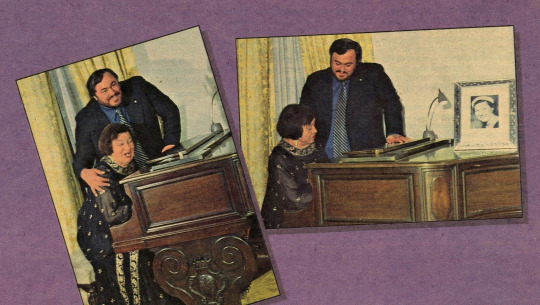
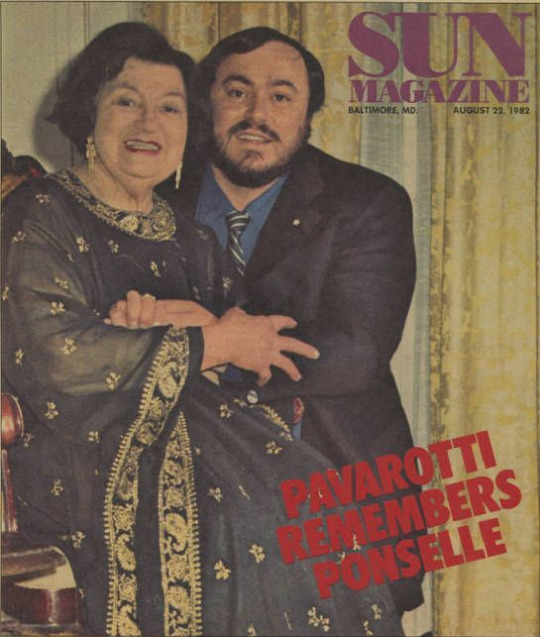

Photograph of Luciano Pavarotti at Villa Pace with Rosa Ponselle at the piano, used in 1982 in an issue of The Baltimore Sun Magazine.
N.B. - Luciano Pavarotti remembers his encounter with Rosa Ponselle: As a boy in Italy, growing up in my hometown, Modena, I can hardly remember a time when the name Rosa Ponselle was unfamiliar to me. (…) One can imagine how I felt, having grown up admiring an artist whom I had known only from a series of prized phonograph records, meeting her in person—and not only meeting her, but actually "singing" with her! (…) It was at Villa Pace, her magnificent home in the Greenspring Valley near Baltimore, that I met and sang with her. My visit to her villa was the culmination of a telephone-and-letter friendship that had begun a few years earlier. (…) After much animated conversation and a splendid meal, we made our way into her expansive music room, where, before she sat down at the piano, she said to me apologetically, "Luciano, I'm not in form today. Every day when I get up in the morning I try out my 'pianissimo'. If it's there, I'm in top form, and I can do anything. Today, it isn't there, but we'll sing together anyway, in full voice." And sing we did! From fragments of arias and snippets of duets to the beloved Tosti songs so dear to us both, we let our voices mate in one long shimmering line of harmony. My only wish was that we could have been transported magically into a modern recording studio, so that the whole world could have shared this once-in-a-lifetime experience.
(Rosa Ponselle & James A. Drake - "Ponselle, A singer's Life", foreword by Luciano Pavarotti - Doubleday & Company, Inc. - Garden City, New York, 1982)
#Luciano Pavarotti#tenor#lyric tenor#Rosa Ponselle#dramatic soprano#soprano#opera#classical music#music history#bel canto#composer#classical composer#aria#classical studies#classical musician#classical musicians#history of music#historian of music#chest voice#diva#prima donna#maestro#classical history#opera history#history#musician#musicians#Sun Magazine#Villa Pace
4 notes
·
View notes
Text
Além do aqui, acho que uns uai e uns né também estavam faltando nos diálogos
#grande sertão veredas#não que eu acho q eu tenha alguma coisa a adicionar a obra prima do guimarães rosa#mas como uma mineira é engraçado ver eles não falando nada disso
1 note
·
View note
Text

Anthony Fineran (B 1981), Pine Nut Prima Rosa, 2023
0 notes
Text



"LA FILLETTE RÉVOLUTIONNAIRE"
🌹Prima Illustrazione del Capitolo Il
"Chu Chu"
🌹Decorazione del Capitolo Il
"Per chi sorride la rosa"
🌹Capolettera del Capitolo
______________________________
🌹First illustration of chapter 2
"Chu Chu"
🌹Chapter 2 decoration
"For Whom the Rose Smiles"
Drop cap of chapter 2
My version of an illustrated novel about Utena's story by Chicho Saitō and Be-papas
#illustration#art#marco calvi art#marco calvi#illustrazione#fan art#fanart#drawing#vintage#rgu anthy#rgu utena#rgu fanart#rgu#revolutionary girl utena#shoujo kakumei utena#utena tenjou#utenanthy#utena#anthy himemiya#chuchu#art nouveau#novels
251 notes
·
View notes
Text
Tentadoramente bom.
Sinopse: Onde Enzo não consegue acreditar que havia caido na sua lábia. Havia se apaixonado por alguém tão jovem...
Warnings: +18, palavrões, menção a sexo, nudez, e agegap.
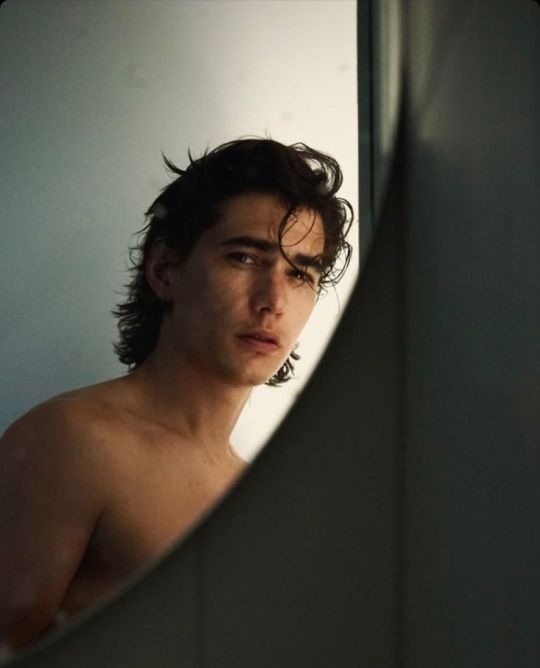
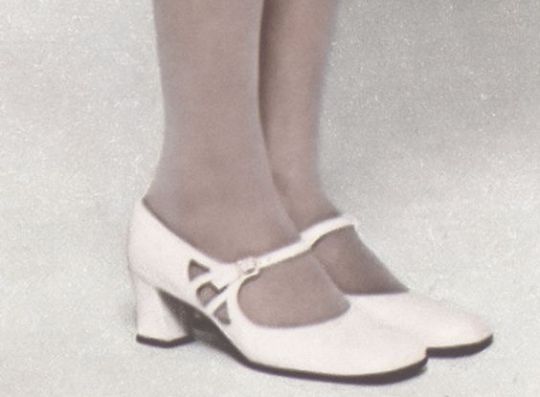
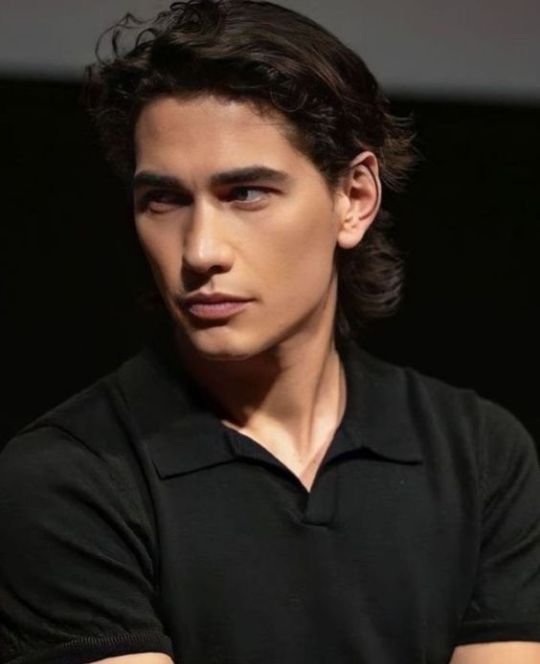
Ele olhava pra você andando pelo apartamento dele. Analisava tudo, tocava algumas coisas timidamente e de vez em quando olhava pra ele. Fazia tudo aquilo usando apenas uma calcinha rosa rendada e um saltinho branco que ele havia comprado pra você naquele mesmo dia.
Na visão dele aquilo chegava a ser pecaminoso. Você era como o fruto proibido. Era prima de uma amiga próxima dele... era apenas um recém mulher (?)
Enquanto ele voltava com o lanche que haviam pedido, e que foi a causa de estarem semi nus, já que antes do motoqueiro chegar estavam a um passo de transar no sofá dele, ele parou quando te viu se sentar no sofá dele e encara-lo fixamente.
''Você tem que parar de me olhar assim nena'' Disse deixando a comida na bancada da mesa e voltando para a sala.
Se ajoelhou de frente pro sofá, bem no meio das suas pernas. ''Senhor me ajuda a resistir vai'' pensou consigo mesmo.
''Por que? A primeira vez que me elogiou foi falando dos meus olhos'' Seu sorriso era o ponto fraco dele. E quando falava com aquela voz suave, encarando ele piscando os olhinhos apenas para deixa-lo mais timido, era ali que ele sentia vontade de se bater, de tão louco que ficava.
''Você é um fruto proibido garota... eu não posso fazer isso'' Disse se levantando devagar ''Eu vou fazer 31 daqui alguns meses. Não dá pra nesse ponto da minha vida me apaixonar por alguém 10 anos mais jovem que eu! Porra eu amo você'' Antes que pudesse se tocar já havia revelado os sentimentos que ele nutria e se culpava pelo mesmo''Eu te amo, mas você... você é uma garota ainda, ta virando mulher nesse momento da vida, sua faculdade ainda... meu Deus você ta no segundo ano da faculdade...''
Tudo que você fazia era rir dele. Passava as mãos pelo cabelo, andava de um lado pro outro, depois te encarava, depois encarava seus seios e descia para sua calcinha.
''Você só tem 19 anos. Só 19'' Mesmo que ele tivesse falado em voz alta, parecia muito mais que aquela frase era uma maneira dele relembrar porque não devia investir naquele sentimento. Era algo pra ele mesmo.
''Na verdade eu tenho 18'' Você disse o tirando do transe. Se levantou e começou a tirar sua calcinha lentamente ''Eu pulei um ano na escola sabe'' Terminou a frase jogando a calcinha nele e sorriu percebendo como ele estava perdido em tudo que estava acontecendo.
''Deus me perdoe'' Enzo disse jogando a calcinha no chão e te sentando no sofá, ficando no meio das suas pernas e caindo na tentação.
179 notes
·
View notes
Text
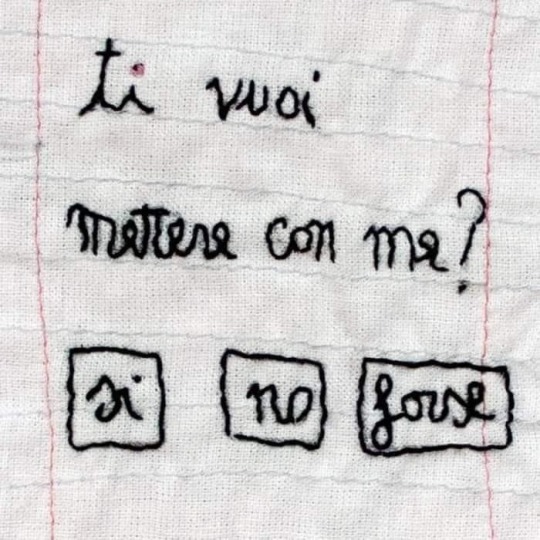
"Ti vuoi mettere con me?"
Era un biglietto piccolo e ripiegato almeno tre volte su se stesso. Lo avevo dato direttamente in mano a "Lucia" un attimo prima che suonasse la campanella di entrata. Intorno alle 8.15. Eravamo in quarta elementare. Grembiule blu io e rosa lei. Con i piccoli bottoni in madreperla e il colletto bianco. Profumo di bucato. Io frangetta, lei occhi grandi. Ricordo quel giorno come se fosse oggi. Nello zaino l’astuccio, il diario, i libri e i pennarelli. E la pizzetta rossa. E i sogni. Dopo pochi minuti, lei mi fa recapitare, tramite passamano dei compagni di classe, banco dopo banco, mano dopo mano, lo stesso foglietto con sotto la risposta, intanto la maestra spiegava geografia, i mari che bagnano l’Italia. I fiumi e confini. C’era una crocetta sul sì: significava che eravamo ufficialmente fidanzati. E sentii la prima fitta allo stomaco della mia vita.
Da bambini sappiamo quello che vogliamo perché sappiamo ascoltare il nostro cuore, e abbiamo il coraggio di manifestarlo senza tanti filtri o giri di parole. Da grandi, invece, non sappiamo più quello che vogliamo, e quando lo sappiamo c’incasiniamo la vita senza motivo. Basterebbe essere semplici, basterebbe dire “ti penso”, “mi manchi”, “ti amo”.
(Roberto Emanuelli)
158 notes
·
View notes